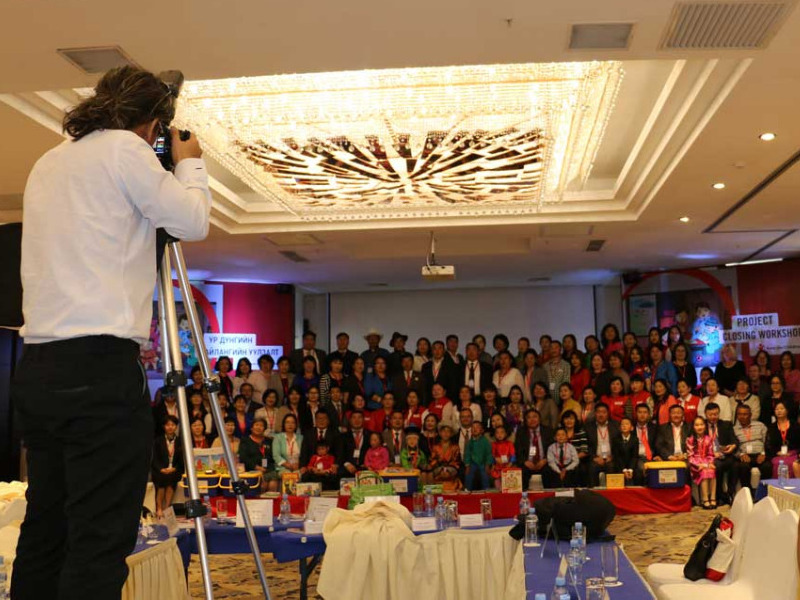Program for Herders’ pre-school children wraps up
Save the Children Mongolia and the Ministry of Education, Culture, Science and Sports have successfully implemented a project that helps herders’ children make a good start to their education. The project demonstrated significant results for 8,500 herder children, their parents, teachers, community and rural areas. The project’s closing workshop was held at the Tuushin hotel on May 29, 2017.
The project titled “Improving primary education outcomes for the most vulnerable children in rural Mongolia”, was conducted between 2012 and 2017 in 30 soums in Arkhangai, Dornod, Uvurkhangai and Sukhbaatar aimags with a total grant amount of USD 2.5 million financed by the World Bank and Japan Social Development Fund. The project created and implemented three programs to meet the learning and development needs of herders’ children in rural Mongolia.
First, over 4,000 five-years old herders’ children with little or no access to early childhood education completed the Home-based school preparation program with their parents’ help. As a result, the average rate of preschool enrollment in four target aimags increased by 13.2%,from 72.8% in the 2012-2013 academic year to 86% in 2016-2017.
A World Bank study on the quality of preschool education found that the cognitive and language skills of children who completed the home-based school preparation programs were better than those who had no access to early childhood education and that studying in ger kindergartens to prepare for school is crucial for children’s further learning and achievement.
Second, children, who enrolled in the Extra-curricular after-school program improved their learning achievements and qualified for the Olympiads and Competitions through attending various activities to discover children’s talents and interests. The program provided them with an opportunity to spend their free time effectively at the Child Development Centers established in school dormitories under the project. The program was designed to help vulnerable children living in school dormitories or with their relatives to improve their personal development as well as their reading, writing and creative thinking skills. About 4,400 herder children aged 6 to 10 have benefitted from the program with their achievements in Math and Mongolian language improving by 15% and 14.75% respectively. As a result, the quality of primary education in 30 soums increased by 15%.

Third, a total of 164 children benefited from the Compensatory education program for lower-primary out-of-school children aged from 8 to 10. The children obtained their primary education by studying Mongolian language and Math programs at home with assistance from their parents. 66 of the children re-enrolled into schools and equivalent programs.
The project also established voluntary groups in each target soum, Community Education Councils. The councils consist of parents and representatives from the community, kindergartens, schools and local government, proving to be an effective initiative for increasing community participation in school activities as well as strengthening the collaboration between key educational stakeholders.
The program has successfully demonstrated viable alternatives for the delivery of early childhood education to hard-to-reach children.
Copyright: http://www.montsame.mn

